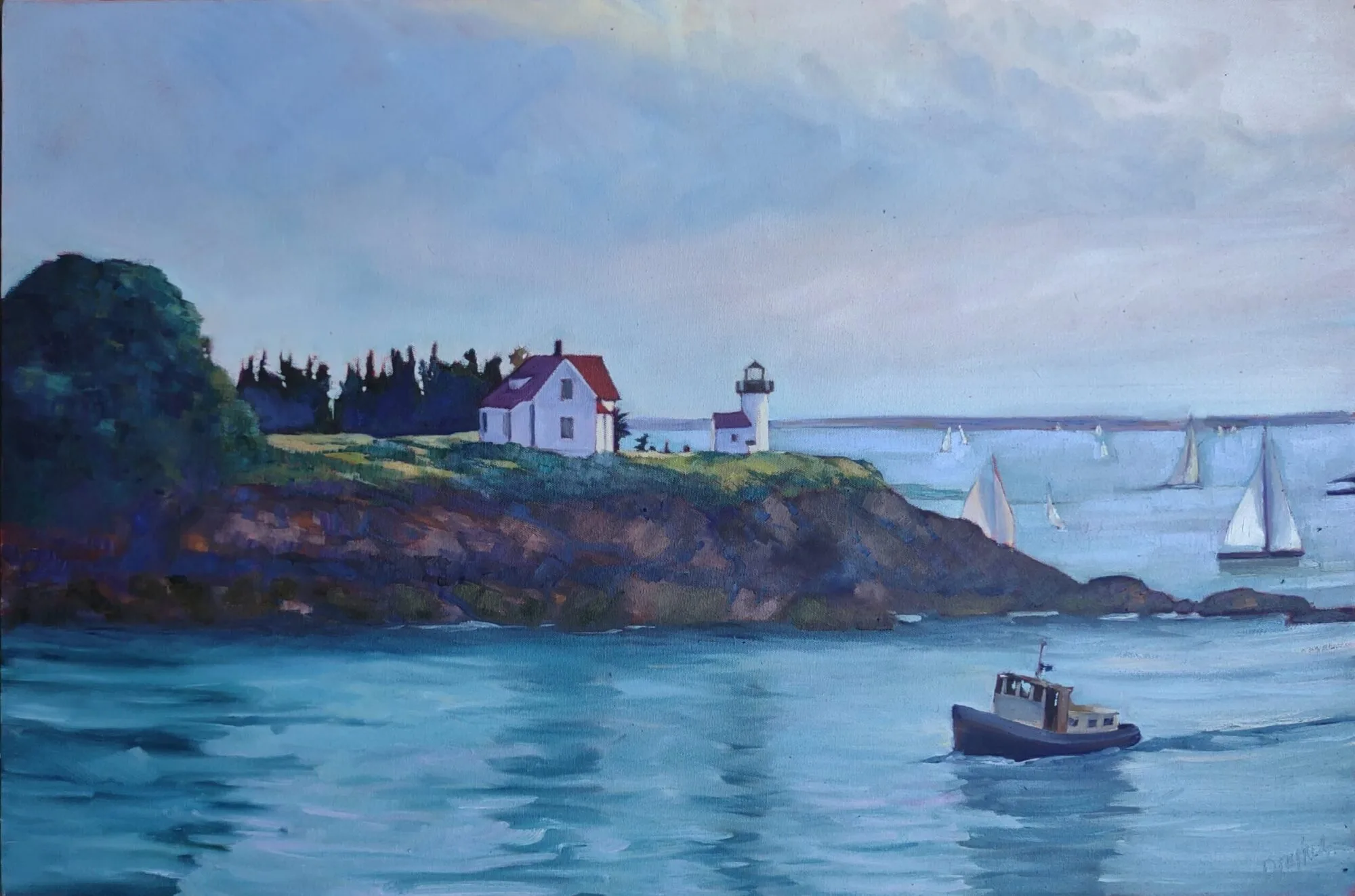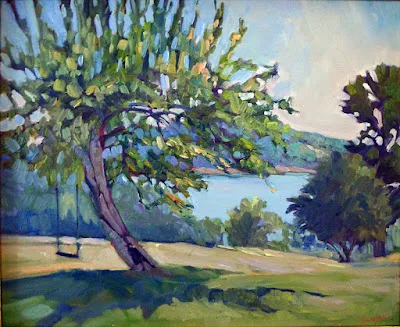What’s the next social media marketing trend?
 |
| Main Street, Owls Head, available. |
Last month I spent a few hours with Kicki Storm, who excitedly told me about the potential she saw in Instagram reels. I was buried in bubble-wrap at the time and more focused on getting a mountain of paintings into a U-Haul trailer. My pal Bobbi Heath, who carefully follows social media marketing, has talked to me about lookalike audiences for Facebook paid ads. I’ve tried them, but not to great success.
Ralph Waldo Emerson is credited with saying, “Build a better mousetrap, and the world will beat a path to your door.” I doubt that was true in the late 19thcentury and it’s certainly not true today. The successful artist has always had one eye focused on self-promotion.
 |
| Apple Tree with Swing, available. |
Like you, I’m overcommitted, overstressed, and overwhelmed. There are lots of people out there interested in taking my advertising dollars, and I don’t have the market savvy to measure their claims. How do I negotiate this constantly-shifting landscape and still have time to paint?
The people who work in the field recommend that small businesses spend anywhere from 7-8% of their gross revenue on marketing. In actual fact, small businesses tend to spend more like 3-5% of gross revenues on advertising. That includes everything to put out their message, such as website hosting, Mailchimp, and other recurring costs. But it also inevitably means paid ads.
Spending that kind of money when you’re starting out can seem overwhelming, and it’s tempting to fall back on organic social-media marketing, which—by the way—is invaluable. But it’s an inevitable part of growth that you’ll need to learn about paid advertising somewhere along the way. The trouble is, there’s no easily-digested textbook.
 |
| Owls Head Fishing Shacks, available. |
I’m seeing a shift in my advertising results this year, a decline in response. This may be an economic problem, as there are worrisome issues that might give people pause about big-ticket purchases. But it’s enough of a shift that I’m looking at different ad platforms, including print media.
Ten years ago, I thought print advertising was moribund, but I’ve noticed that I see consistent results from the Maine Gallery Guide. That’s emboldened me to dip my toe back into other print advertising.
At the same time, the cost-per-click on Facebook continues to rise. According to Wordstream , the average cost-per-click is now $1.72. That may not be a big barrier to LL Bean, but it is to an artist.
What Facebook used to be able to do superlatively was target customers. However, a global shift toward consumer privacy has made Facebook targeting more difficult.
 |
| Belfast Harbor, available. |
As Facebook has grown into the juggernaut it is today, fine artists are now too small a market-niche for targeting. There aren’t even categories of ‘landscape workshops’ or ‘plein air painting’ in their current interest groups. When we tell it to match for people who are ‘interested in art,’ that’s too broad a brush.
Where does this leave us? Looking elsewhere. And that includes niche publications directed at artists.
Years ago, Bobbi Heath told me to never neglect my own lists. This shift in marketing is a strong reminder to build up your own lists so you can market directly from them. And I’m the pot-calling-the-kettle-black on this, because I haven’t had a sign-up box on this blog since the start of the year. I’ll get to it, I swear.

